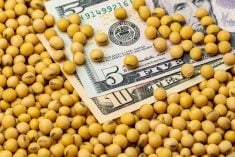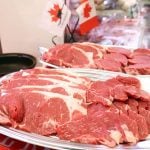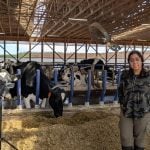Chicago | Reuters — U.S. livestock futures rose on Friday on a spate of technical buying as the market tried to recover from its steep discount to the cash market, traders said.
Strong demand from consumers at grocery stores due to worries about the coronavirus underpinned the gains.
“They want to have as much meat on hand right now,” said Craig VanDyke, senior risk manager at Top Third Ag Marketing. “They are going to try to keep up with this situation.”
Futures sold off sharply early in the week on concerns about a slowdown in demand from restaurants. But the cash market remained strong as consumers emptied shelves at grocery stores.
Read Also

China to buy 12 million metric tons of soybeans this season, Bessent says
U.S. Treasury Secretary Scott Bessent said on Thursday that China has agreed to buy 12 million metric tons of American soybeans during the current season through January and has committed to buying 25 million tons annually for the next three years as part of a larger trade agreement with Beijing.
CME’s May feeder cattle futures contract, trading with expanded limits of 6.75 cents, settled up 5.225 cents at 118.250 cents/lb. (all figures US$).
CME June live cattle futures were 0.6 cent higher at 89.525 cents/lb.
CME April lean hog futures were 0.425 cent higher at 61.575 cents/lb.
After the market closed, the U.S. Agriculture Department said in a monthly report that the amount of cattle on feed as of March 1 was 100 per cent of a year earlier.
Placements during February were 92 per cent of February 2019 placements and marketings were 105 per cent of a year earlier.
The figures were in line with market expectations.
— Mark Weinraub is a Reuters commodities correspondent in Chicago.











